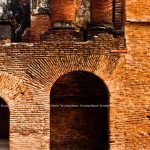Allama Tafazzul Hussain Khan
The Prime Minister of Awadh with a difference
Allama Tafazzul Hussain Khan (1727 – 1800) was popularly known as ‘Khan-e-Allama’. The title of ‘Allama’ was conferred by ‘darbar-e-shahi’ only to highly exceptional scholars of the time. This is evident from the fact that only three scholars could earn this title namely ñ Abu-al-Fazl, Asadullah Shahjahani and Tafazzul Hussain Khan.
Tafazzul Hussain Khan was of Kashmiri descent, his grandfather was a highly ranked Mughal official. Born in Sialkot, his father moved to Delhi when he was around fourteen. In Delhi, he studied rational sciences by the ‘Nizami method’. When his family moved to Lucknow, during the reign of Nawab Shuja-ud-Daula, he had an opportunity to study at Farangi Mahal and work with Mulla Hasan. He asked Mulla Hasan such baffling questions that the Farangi Mahali finally hurled his book to the ground in exasperation and expelled him from the classroom. Tafazzul then studied on his own, mastering difficult philosophical works by Avicenna in Arabic. He later came to the attention of Shuja-ud-Daula, Nawab Wazir of Awadh, who appointed him as tutor to his second son, Sadaat Ali Khan. He also began the study of Latin, the language of classical learning in Europe. He would later add Greek to his repertoire. Tafazzul’s interests were in both modern and ancient literature, but his first love would always remain mathematics and astronomy.
Reuben Burrows, the mathematician, writes: “Tofuzzel Hussein continues translating the Principia of Newton (from Latin to Arabic) and I think we shall soon begin to print it here in ArabicÖ. He has likewise translated Emerson’s Mechanics, and a treatise on algebra (that I wrote for him) in Arabic. He is now employed in translating Appollonius de Sectione Rationis. The fate of this work is singular; it was translated from Greek into Arabic, and the original one in Greek was lost; it was afterwards translated from Arabic into Latin, from an old manuscript in the Bodleian library; the Arabic of it is now totally lost in Asia. I translated the Latin version into English and from the English Tofuzzel Hussein is now rendering it into Arabic again.”
William Jones would write to a friend, “Tafazzul Hussain Khan is doing wonders in English and Mathematics.”
After the death of Nawab Shuja-ud-Daula, his elder son Asif-ud-Daula ascended to the throne of Awadh. Nawab Asif-ud-Daula appointed Allama Tafazzul Hussain Khan as the Prime Minister of Awadh.
Asif-ud-Daula fell ill in July 1797, refused to take medicine and died on 21 September 1797. He was succeeded by Wazir Ali Khan, his eldest son and supposedly his designated heir. He was 16 years 5 months and 3 days old at the time of his accession. Later, Bahu Begum and other executives decided that Wazir Ali had to be replaced by Tafazzul’s former pupil, Sadaat Ali Khan. Tafazzul’s role in this episode earned him the opprobrium of Awadhiís as people feared that Tafazzul Hussain would dominate the state affairs because his former pupil would lack enough courage to go against his teacher’s advice. But when Sadaat Ali Khan ascended to the throne of Awadh, Allama Tafazzul Hussain Khan submitted his resignation from the office of Prime minister after which the Nawab sent him to Calcutta as his ambassador.
Apart from his work in the rational sciences he contributed a number of discourses on works related to the Hadis, the tradition of the Holy Prophet, jurisprudence, on Islamic philosophy and sciences; these studies were so numerous and varied that something of their kind had rarely been attempted by other scholars.
Abd-al-Latif Shushtari, who was the Ambassador of Hyderabad to the British in Calcutta, describes him thus: “Tafazzul was respected by the scholars of Europe and people from every part of the country paid respect to his excellence. In fact, his merits, scholarship and learning entitled him to a higher status. It required a lifetime to write about his merits. The entire India and its people were proud of Tafazzul and paid high respects to him and venerated him for his scholarly attributes. It has been since ages that a scholar of Tafazzul’s stupendous intellect was born”.
Instances of Tafazzul’s knowledge and wisdom can be found in various books written in different languages including English, Urdu, Arabic & Persian. Writers such as John Shore, J.R.I Cole, Najmul Ghani, Agha Mehdi and many others have given a pen portrait of Allama’s nobility and knowledge. He has been often described as a soft spoken, mild mannered man who never changed his courteous and egalitarian behavior towards the poor and the weak.

Allama Tafazzul Husain Khan Kashmiri and his British colleague
Tafazzul’s house was no less than a grand palace. It was located in Katra Abutarab Khan. Adjacent to the house was a beautiful baradari. Agha Mehdi vividly described in his book Tareekh-e-Awadh, the beauty of Allama’s baradari as ìtaqt-e-taoos of Lucknowî. After the Independence, the ruins of the baradari were broken down by the government and that was converted into a public park (Nau Rattan Park). Tafazzul had a son named Tajammul Hussain Khan and a daughter named Ibtehajunnisa Begum. Tajammul Hussain Khan’s grave is still in his own imambara located in Katra Abutarab Khan, Lucknow.
When Tafazzul Hussain Khan was in Calcutta, in the year 1800, he had a paralytic attack. Once he started recovering, he resolved to visit Lucknow. He died on his way to Lucknow and was buried in Hazari Bagh. Mirza Jafar Hussain (advocate) wrote that in 1930, Col Bird mentioned in his Dacoitee in Excelsis that Allama Tafazzul Hussain was poisoned to death. But this book was immediately banned by the British Government.
Hence Tafazzul Hussain Khan’s death remains a mystery even today.
Many renowned poets of that time wrote elegies in different languages on his death to pay their tribute to one of the most intelligent and knowledgeable persons of the world. Verse from an elegy written by Mirza Abu Talib in praise of Tafazzul Hussain Khan has been translated and runs thus:
Alas! The zest of Learning’s cup is gone;
Whose taste ne’er cloy’d, tho’ deep the draughts;
Whose flavour yet upon the palate hangs
Nectareous, nor Reason’s thirst assuag’d
But yes; – rent is the garment of the morn;
And all dishevell’d floats the hair of night;
All bath’d in tears of dew the stars look down
With mournful eyes, in lamentation deep:
For he, their sage belov’d, is dead; who first
To Islam’s followers explain’d their laws.
Their distances, their orbits, and their times,
As great Copernicus once half divin’d,
And greater Newton proved: but, useless now,
Their work we turn with idle hand, and scan
With vacant eye, our own first master gone.
Rubina Jawed Murtaza
Writer is social worker and passionate about Lucknow
(Published in The Lucknow Observer, Volume 2 Issue 20, 5th November 2015)




